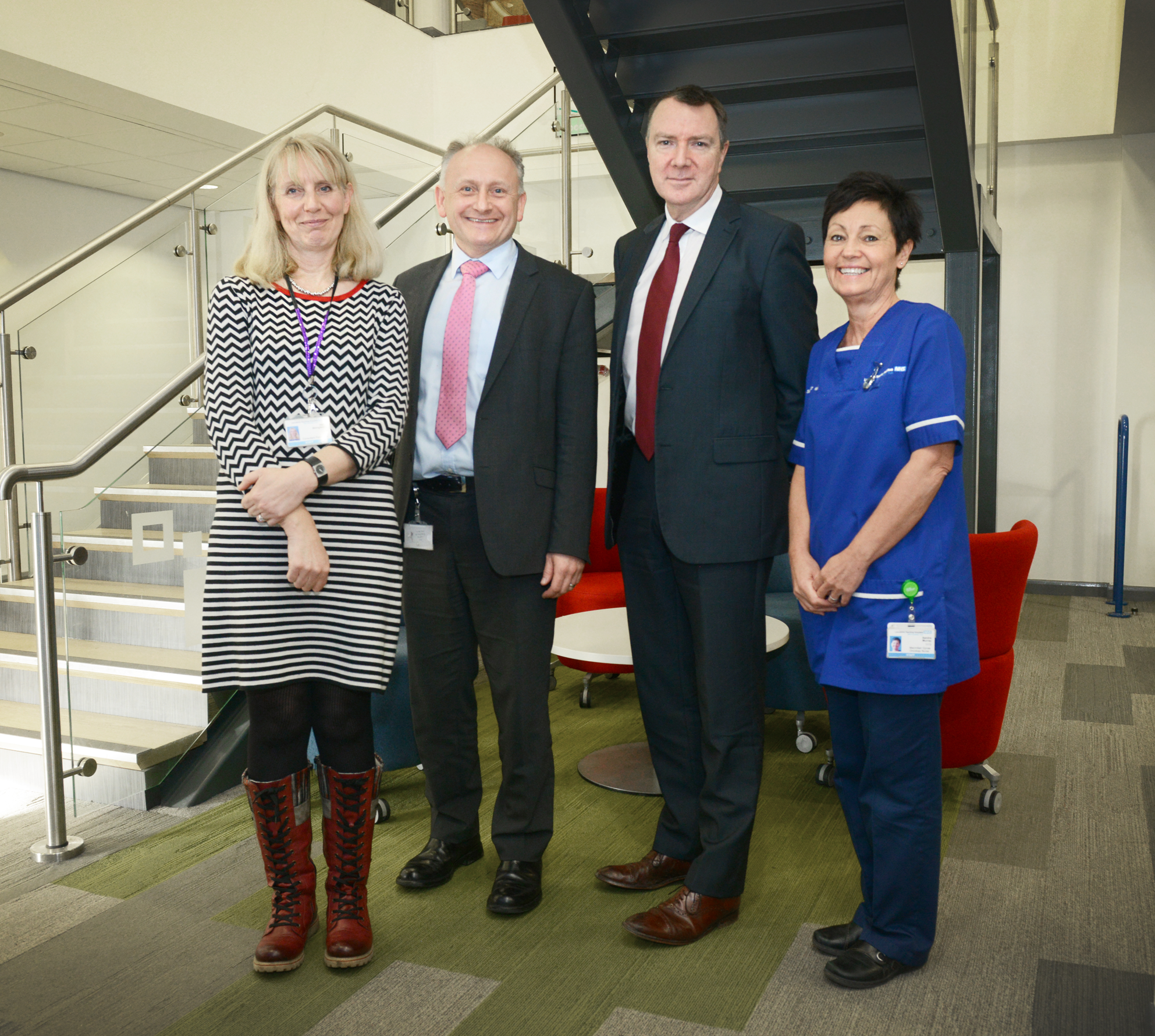Lancashire Teaching Hospitals is part of the North West Coast Genomics Medicine Centre which is leading the use of genomics to benefit patients and transform patient care.
Genomic medicine analyses an individual’s DNA to predict, prevent, and more accurately diagnose disease through personalised treatment, specifically for rare diseases and forms of cancer.
The 100,000 genomes project has the ambitious goal of fully sequencing the DNA of 100,000 whole genomes (all the information within our DNA that makes us who we are) of individuals being treated for cancer or a rare disease, and their families, to gain a better understanding of causes of the conditions.
This approach will ensure patients receive the most appropriate treatment for them. The data from all the individual DNA sequences will also be analysed for new disease associations to allow the development of new treatment options to aid in future treatments.
Karen Partington, Chief Executive of Lancashire Teaching Hospitals NHS Foundation Trust said, “As the cancer centre for Lancashire and South Cumbria, as well as a leading research centre, it’s really important that we’re involved in such pioneering programmes. This will enable us to bring emerging treatment and approaches to local patients now, as well as break new ground in healthcare that will benefit future generations.”
The revolutionary genomic medicine service has provided a gynaecology patient at the Cancer Centre at Lancashire Teaching Hospitals with a cancer diagnosis and a personalised care pathway, through analysis of her DNA. Margaret was the first patient with ovarian cancer at the Cancer Centre to enter into the 100,000 genomes project when she underwent surgery to remove her tumour in December.
Margaret said: “I am fortunate to be the first cancer patient in Lancashire to take part in this important development. It’s a really exciting project and I am thrilled to be part of something which could have so much benefit to others in the future.”
This first operation was performed by Patrick Keating, Consultant Gynaecologist at Lancashire Teaching Hospitals. Patrick said: “I am delighted that Lancashire Teaching Hospitals can be a part of this study, which promises to open new avenues for research and lead eventually to improved patient care.”
When a patient consents to participating in this project, blood and, occasionally, saliva samples are taken at the time of surgery. Cancer patients also donate a small piece of their tumour. DNA is then extracted from these samples and sent to the National Biorepository, where genome sequencing and interpretation of results takes place.
By comparing DNA extracted from the tumour with DNA extracted from the patient’s normal functioning non-cancerous cells, specific cancer mutations can be identified.
A second patient with ovarian cancer has also now entered into the 100,000 genomes project.
Mary was being treated for ovarian cancer when she underwent surgery to remove her tumour. Mary said: “I hope that this project will lead to further developments in the understanding of genomics which will help my family and future generations to get a better cure from cancer.”
This second operation was performed by Pierre Martin-Hirsch. Pierre Martin-Hirsch, Consultant Gynaecologist and Head for Research and Development at Lancashire Teaching Hospitals, said: “This is a hugely exciting project for Lancashire Teaching Hospitals to be involved with. Genomics will help us in the future to design personalised medicines which should lead to better outcomes for patients.”

